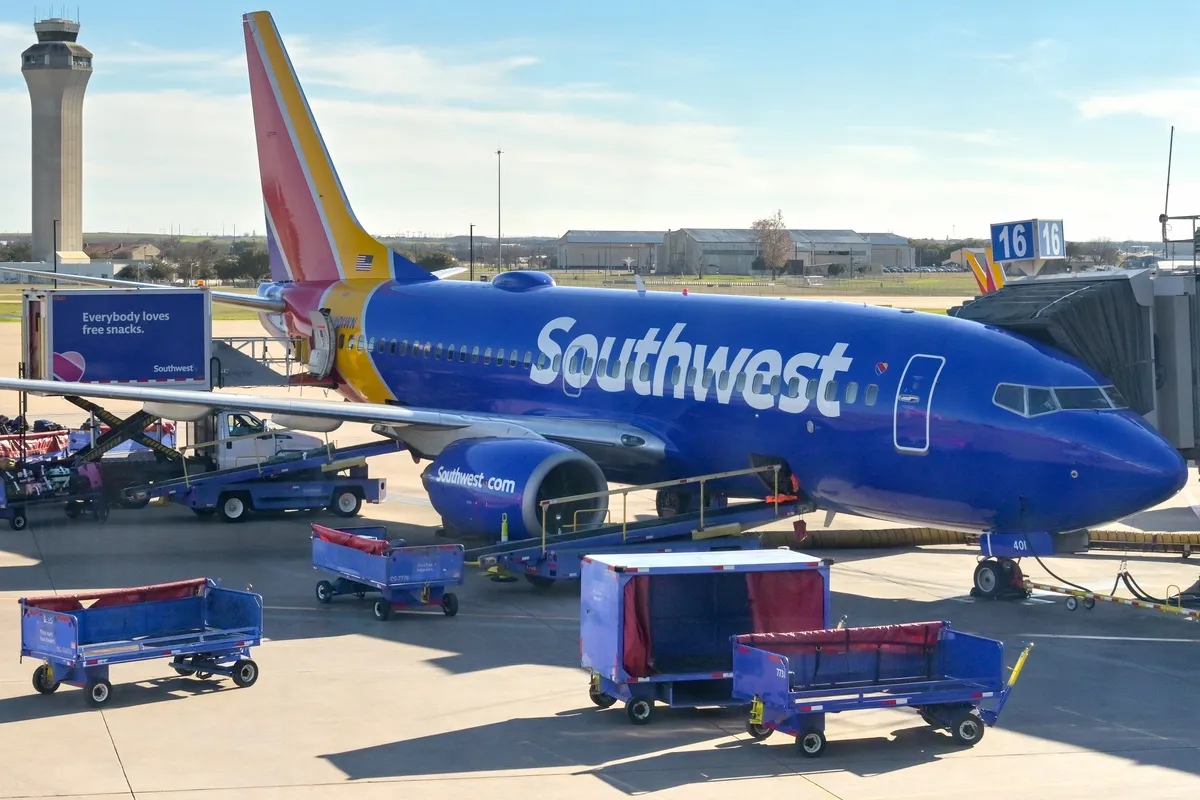Southwest Airlines CEO Bob Jordan said the carrier remained committed to carrying out major changes like the introduction of bag fees, which have been met with customer blowback.
“Looking ahead, we are confident in the initiatives we have outlined and the value we expect them to produce,” Jordan said in a statement.
Southwest is also planning to reduce capacity during the second half of the year due to weakness in domestic demand. Multiple airlines have reported softer domestic demand, while demand for premium and international travel remains high.
“We are committed to executing on these plans while controlling what we can control,” Jordan said.
The carrier reported a net loss of $149 million and revenues of $6.4 billion for the first quarter. While rivals like Delta Air Lines declined to release a 2025 outlook and United Airlines released a split forecast, Southwest posted targets for 2025 and 2026.
Southwest said in a regulatory filing that it expects earnings before interest and taxes to be around $1.8 billion for the year and approximately $4.3 billion in 2026. The carrier added that the targets were difficult to forecast due to “recent and short-lived booking trends” stemming from economic uncertainty.
Jordan added that the airline was on track to introduce bag fees and basic economy fares next month, which have been some of Southwest’s most controversial changes.
The carrier had been in a bitter battle with activist investor Elliott Investment Management last year. Elliott, which had pushed for premium seats and bag fees, ultimately won representation on Southwest’s board.
Southwest is also now looking to further cut costs. In April, Southwest conducted its first-ever layoffs, slashing 15% of its corporate workforce. In the filing Southwest said it is looking to increase its cost reduction plan to $370 million.
Airlines Sector Stock Index Performance Year-to-Date
What am I looking at? The performance of airline sector stocks within the ST200. The index includes companies publicly traded across global markets including network carriers, low-cost carriers, and other related companies.
The Skift Travel 200 (ST200) combines the financial performance of nearly 200 travel companies worth more than a trillion dollars into a single number. See more airlines sector financial performance.
Read the full methodology behind the Skift Travel 200.

